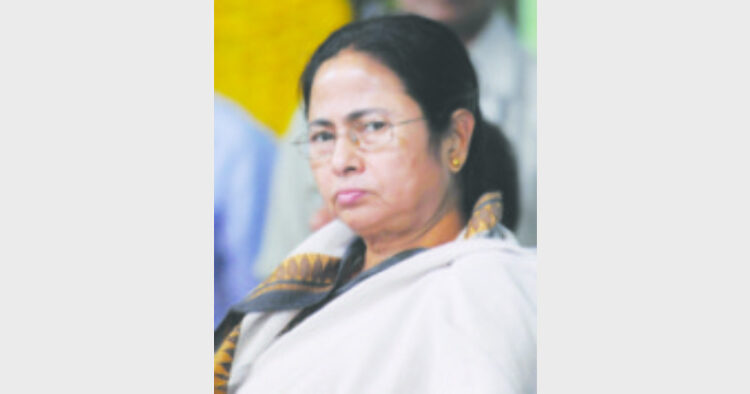TMC Supremo and chief minister of West Bengal Mamata Banerjee had supported the Presidential candidate nominated by UPA under majboori and Congress thought this was the opportune moment to teach her a good lesson of coalition politics. While Mamata was in Delhi to attend the swearing-in celebration of the 13th Rashtrpati of the country Shri Pranab Mukherjee, the Central government increased the prices of petrol & petroleum goods without even giving her a hint of it. This was a blatant betrayal of coalition politics and not only that, the said prices went up in only seven states including West Bengal.
Mamata smelt rat in this move of the Central government. After landing at Kolkata airport she lambasted the Central government and threatened them by declaring that the ruling party of the State would come out on the street to fight against the illogical and vindictive step of the Central government. She openly declared that there would be no track with the State Congress and the Trinamool Congress would fight the ensuing Panchayat election alone. They would not take Congress along with them. Although Panchayat election is scheduled to be held in May next year, Mamata declared that they would hold it sometime in November. In doing so they would face certain legal hurdles. But they would sort them out.
Some political Pundits and newspapers had already commented on this move saying that Mamata was apprehending erosion in her support base. Whether this was a ‘fact’ needed to be carefully scrutinised. For example, the CPI (M) and its Labour wing CITU had declared that there would be a “transport strike throughout the State” on July 31 which would ultimately take the shape of ‘Bangla Bandh’. Naturally the ruling party and the administration had become very much worried as this would give a wrong signal to the people if the strike emerged as successful. Mamata and her party colleagues took a very tough stand to stop the so-called transport strike which compelled the top brass of CPM to rethink their decision of observing so-called ‘Bangla Bandh’ and ultimately it was withdrawn.
It is for the first time that the CPM had called-off a declared decision of observing strike. This has proved the bankruptcy they are facing in mustering faith and enthusiasm among the cadres. Debashis Dutta, State president of AITUC, the CPI’s Labour wing said, “I have been with Left trade union movement for nearly 50 years but have never heard of CITU deferring a strike it had announced.”
Mamata can now claim to have achieved something that was inconceivable a few years ago in Bengal: force CITU to beat a retreat from a strike in a sector that it had lorded over. Even two years ago, all it would have taken CITU to bring the city and the rest of Bengal to standstill was a red plastic chair, defiantly positioned at intersections, with two bricks to keep its flag in place, commented the Kolkata based newspaper The Telegraph. This particular move has proved that how much demoralised is the CPM & CITU.
Mamata had deputed all her party leaders and ministers to all the districts of Bengal so that rural voters could be brought under their flag. Seventh 3-Tier Panchayat election took place on 11, 14, & 18th May, 2008. The result of the election had shown a descending trend for the Left Front. In 748 Zilla Parishad seats Left Front could keep their supremacy although stalwarts got shock of defeat. In a total of 8,798 Panchayat Samiti, Left Front had to slide down to minority and in a total of 41,513 Gram Panchayat seats both Left Front and their opposition shared seats almost equally. That was for the first time that 31 years of unchallenged administration of Left Front got a big shock and they could feel how strong the anti-incumbency factor was. Credibility of Left Front in the minds of people was fast reducing. Left Front could not understand this trend. Hence, Mamata was not ready to keep any vacuum space where they could thrive in.
Mamata’s party was to some extent weak in north Bengal. So she and her Cabinet colleagues primarily, concentrated their tour programme in that area. Promises for development were being poured in like water. At the same time organisational network was being streamlined. On the face of this publicity onslaught the fractured morale of CPM and Left Front partners has been exposed very badly.
It is peculiar to notice that even under these circumstances when a golden opportunity to wash out the rural base of Left parties had come, the Congress had been hobnobbing with the Left parties. The CPM had welcomed this situation as this would give them a positive result by division of rightist votes and according their perception, this would tarnish the prospect of TMC.














Comments